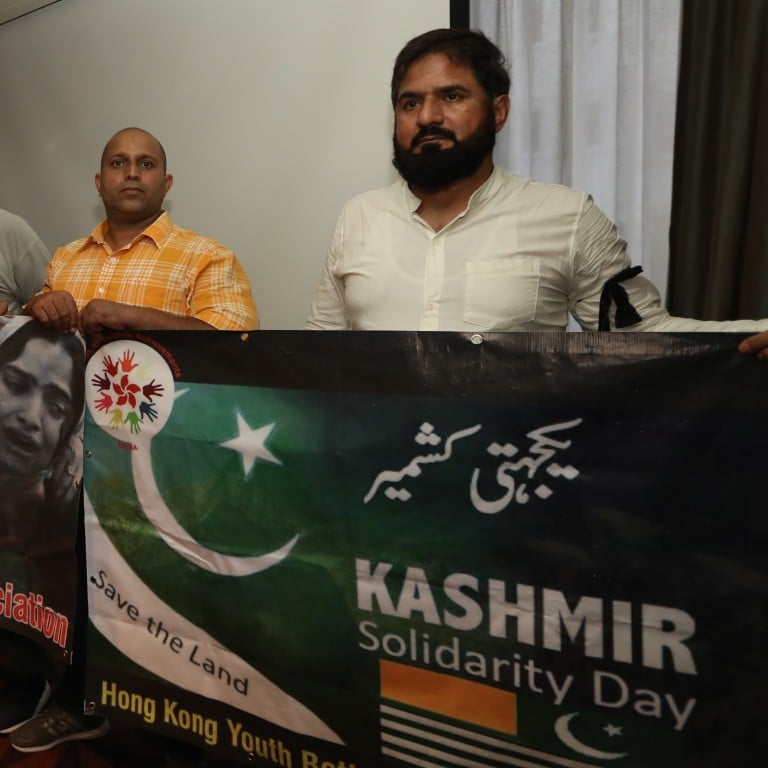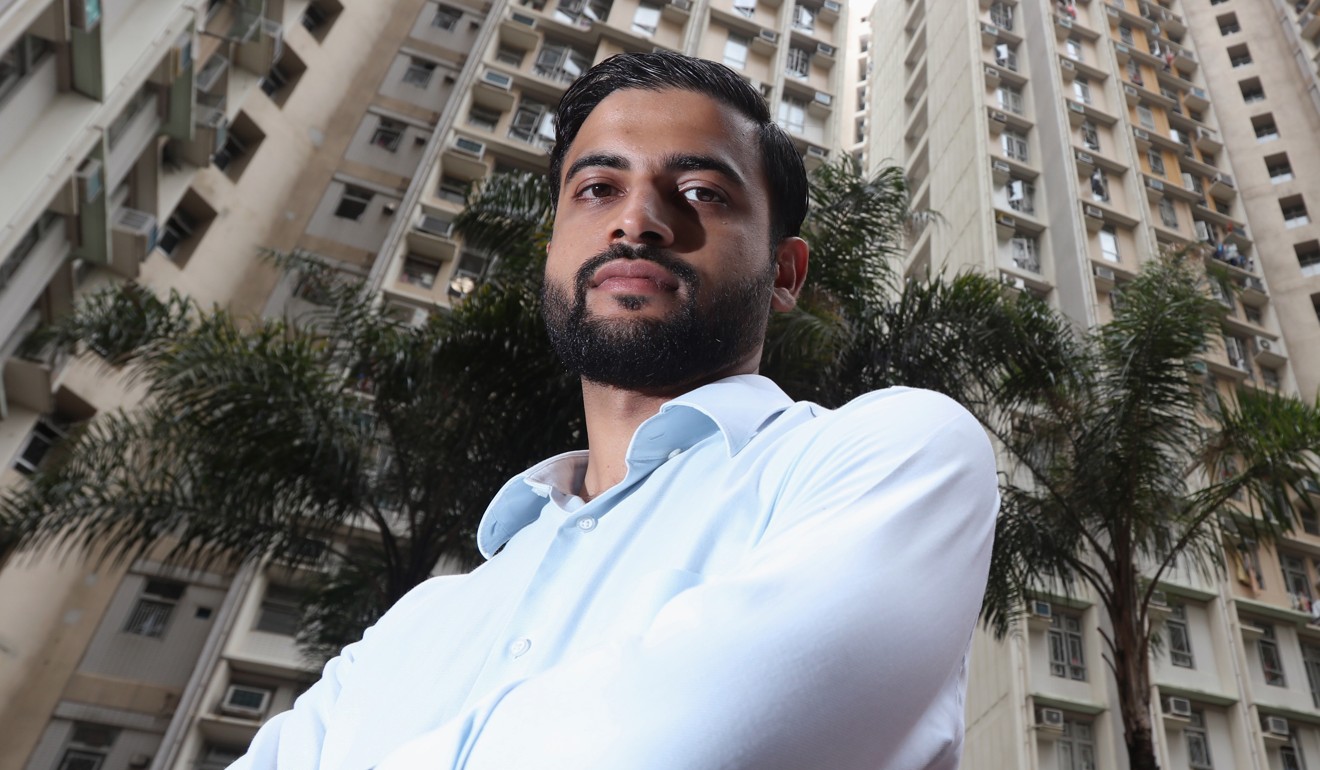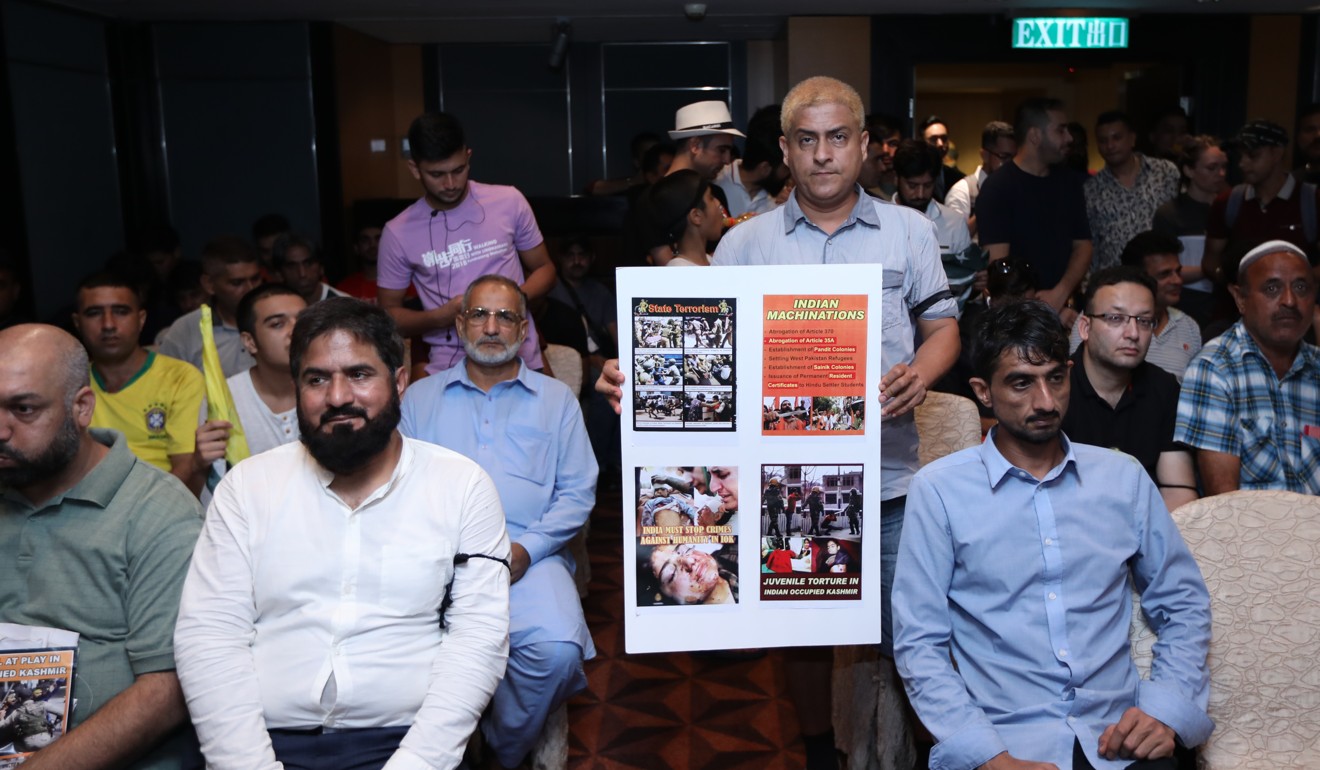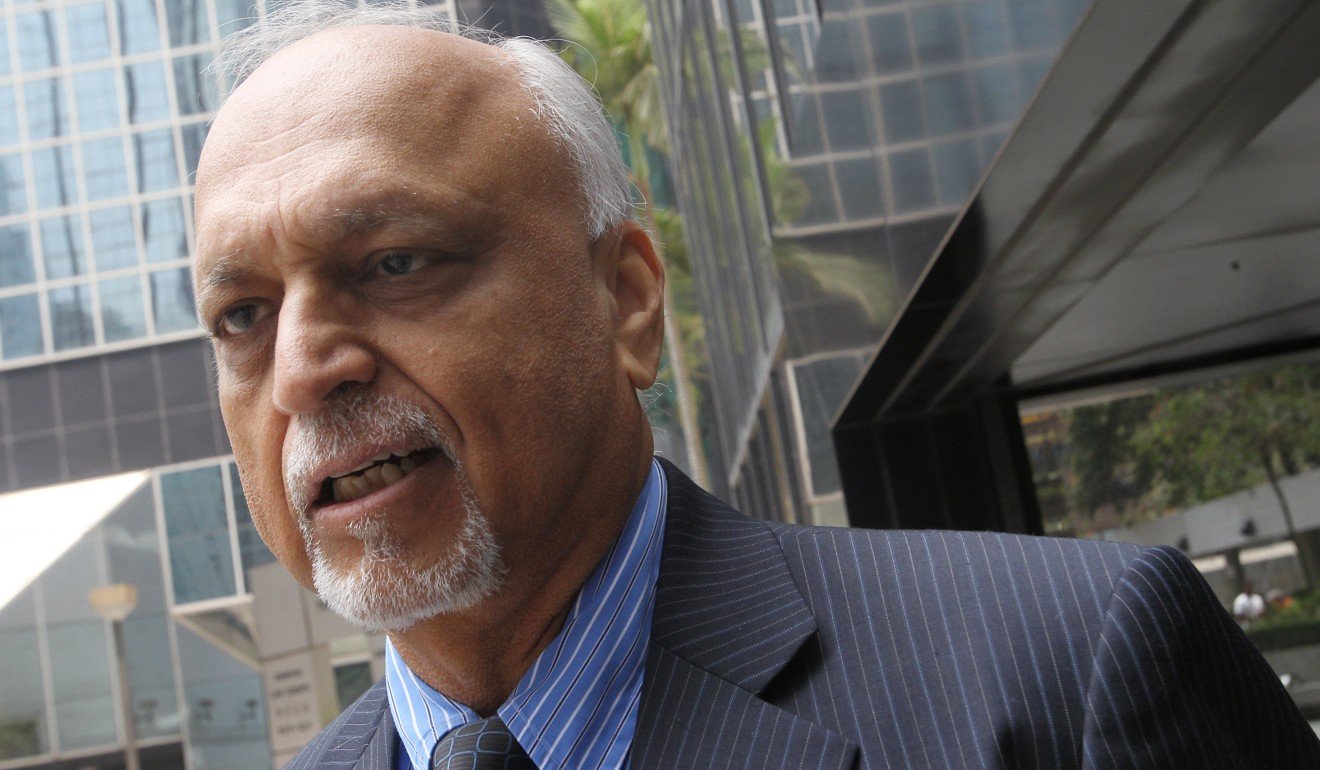
Pakistanis in Hong Kong condemn Modi’s move to strip Indian-held Kashmir of autonomy
- Since August 4, parts of Indian-held Jammu & Kashmir have been under lockdown, with communications cut and freedom of movement restricted
- Hong Kong’s Pakistani community has denounced India’s treatment of the disputed region, saying it had not been able to receive necessities during the clampdown
The group held a rally in Kowloon launching the Overseas Kashmir Association of Hong Kong, and drove a convoy of buses through the area bearing posters which read “Kashmir needs world attention”.

“The world needs to wake up to this reality,” said Yasir Naveed, former president of the Hong Kong chapter of Pakistan Tehreek-e-Insaf (PTI), the party of Pakistan’s leader Imran Khan.
“It is not an issue of Pakistan, it is an issue of humanity. No religion or nationality is above humanity.”
The Himalayan region has for years been a flashpoint between the nuclear-armed neighbours, subject to divided control between Pakistan in the west and India in the Kashmir Valley. Parts of the north are also controlled by China.
After arresting local leaders, cutting off all communications and imposing restrictions on movement, Modi’s government split the region into two union territories, Jammu & Kashmir and Ladakh.
This move means the special status previously afforded to the state – which included decision-making rights on all matters except defence, foreign affairs and communications, and framing its own constitution – are no more.
Modi has crossed every line by passing this law unilaterally on the disputed territory of Kashmir.
However, China’s Foreign Minister Wang Yi warned Indian External Affairs Minister Subrahmanyam Jaishankar last week that the changes will “trigger regional tension”.
China hopes India and Pakistan can settle the dispute through peaceful means, Wang said.

Necessary goods like food and medicine have not been able to enter the blockaded region during this time, Naveed said, and little information has been able to escape the blackout.
Is India’s Kashmir move an attempt to shift its Muslim demographic?
“Modi has crossed every line by passing this law unilaterally on the disputed territory of Kashmir,” said Naveed, who grew up in Karachi before moving to Hong Kong at 16 and going on to receive an MBA from Hong Kong University of Science and Technology.
Modi said the goal of stripping the autonomy of Jammu & Kashmir was to boost its economy and bring investment into the territory, but critics say this is a guise to give non-Kashmiris incentives to move to the area and “dilute” the population.
Hong Kong is home to about 35,000 Pakistanis, according to most recent census data, compared with nearly 40,000 Indians.
The Pakistani community is on average younger and less educated. The city provides dedicated services to the community, including language and computer skills training.
Despite the divisions between the two nations, India-born member of the HKSAR Chief Executive Election Committee Manohar Chugh said the two communities coexist well together, and that political topics rarely cause divisions among the South Asian community in Hong Kong.

Chugh, 75, has spent more than five decades in Hong Kong and worked on the city’s anti-discrimination laws. At a ceremony yesterday celebrating India’s Independence Day, there were no signs of protest, he said.
Indians are happy about the actions of the Modi government in Kashmir, Chugh said, adding that the conflict there had been “too prolonged” and stability may finally come to the region.
Estimates suggest more than 42,000 lives over the past 30 years have been lost in the contested region, where UN peacekeepers have been deployed since 1949 to observe a ceasefire.
Pakistan will ‘fight till the end’ if India wages violence in Kashmir: Khan
Naveed, speaking on a panel of Pakistani community leaders, called for Hong Kong’s Indian community to stand with Pakistan to stop New Delhi’s treatment of Jammu & Kashmir.
“They need to ask the right questions of Modi,” said Naveed. “They need to ask why the 10 most popular car makers from India have left India, why the economy is going down.
“Modi has decided he’s not going to rule the country, he’s going to incite violence against Muslims. We need to ask every human to come together over this. Why does the world remain silent?”

